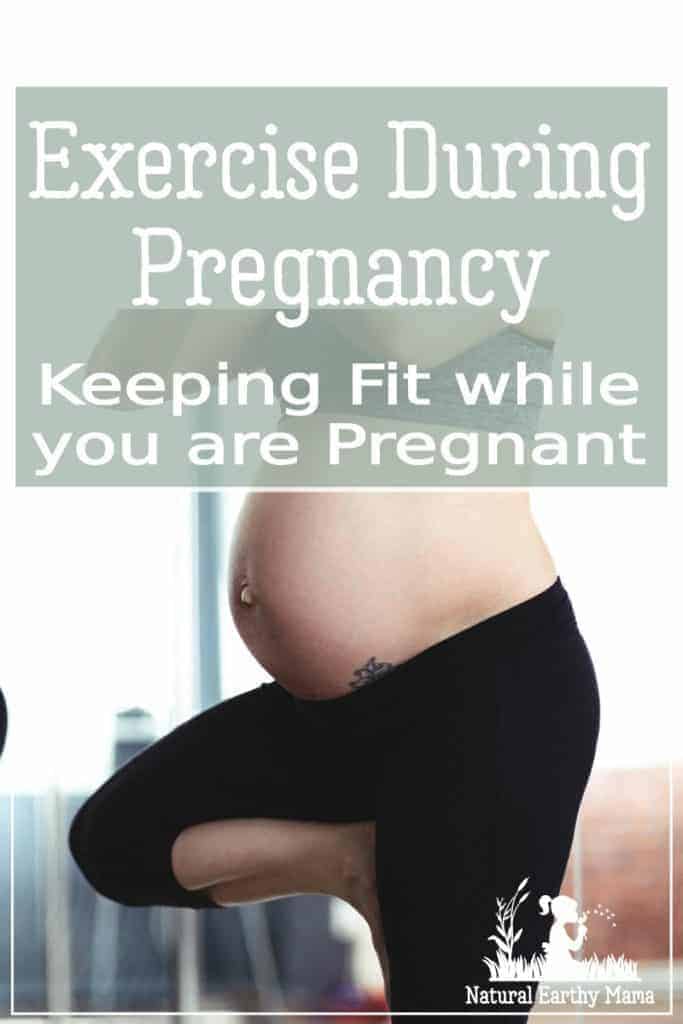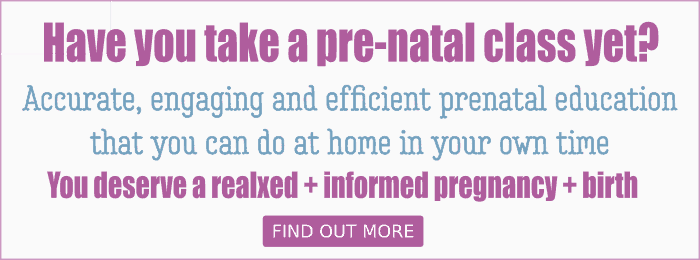 When you get pregnant, the natural urge is to stop moving and start indulging.
When you get pregnant, the natural urge is to stop moving and start indulging.
I understand that you may have been on a diet and exercise binge for the last little (or long) while trying to get pregnant, and now that you are, you feel like you owe it to yourself to slow down and enjoy your chocolate cake again.
Please read: This information is provided for educational purposes only and is not intended to treat, diagnose or prevent any disease. We encourage you to make your own health care decisions in partnership with a qualified health care professional.
This post contains affiliate links, this means at no extra cost to you, we make a commission from sales. Please read
our Disclosure Statement
But is that the best thing to be doing?? Keeping up a regular exercise routine, as well as continuing to eat well actually has many benefits that you will appreciate later.
Exercise During Pregnancy: Keeping Fit while you are Pregnant
Article includes:
Why should you exercise during pregnancy?
What types of exercise are safe during pregnancy?
Can exercise cause miscarriage in early pregnancy?
Which month do you start to exercise during pregnancy?
Exercise during pregnancy first trimester
Exercise in pregnancy second trimester
Exercise in pregnancy third trimester
Pregnancy workout routine ideas
Exercises to avoid during pregnancy
Why Should you Exercise During Pregnancy?
Keeping up with a regular exercise routine throughout your pregnancy can help you stay healthy and feel your best.
Regular exercise during pregnancy can decrease some common discomforts such as backaches and fatigue and improve your posture and core strength.
There is evidence that physical activity may help prevent gestational diabetes, relieve stress, and build more stamina needed for labor and delivery.
Strong muscles and a fit heart can greatly ease labor and delivery. Gaining control over your breathing can help you manage pain. And in the event of a lengthy labor, increased endurance can be a real help.
If you were physically fit before your pregnancy, you should be able to continue your usual routine with some modification. Don’t try to exercise at your former level; instead, do what’s most comfortable for you now.
Regular exercise helps keep you regular – movement helps massage your bowel and keeps things moving along. Goodness knows we all need this while we are preggers!
What Types of Exercise are Safe During Pregnancy?
Most exercises are fine during pregnancy, as long as you don’t push yourself too hard. Pregnancy friendly exercise includes:
- Walking
- Swimming
- Yoga
- Tai Chi
- Stationary Bikes
- Elliptical walker/treadmills
- Low impact aerobics
- Pilates
- Dancing
Can Exercise Cause Miscarriage in Early Pregnancy?
This question gets asked a lot. And the answer is probably not, it depends.
Almost all miscarriages are caused by a genetic whoopsydaisy that is not compatible with life, or a low progesterone level causing failure of your womb lining.
However, over expending yourself causing a raise in cortisol, can in theory make your body panic and upset the hormonal balance, causing a loss of pregnancy. In the same way extreme emotional stress can cause the same thing.
If you were a runner before you were pregnant, you probably can continue running during your pregnancy, although you may have to modify your routine a bit.
Whatever type of exercise you and your doctor decide on, the key is to listen to your body’s warnings. Many women, for example, become dizzy early in their pregnancy, and as the baby grows, their center of gravity changes. So it becomes easier for you to lose your balance, especially in the last trimester, so be careful!
Your energy levels will probably vary greatly from day to day. And as your baby grows and pushes up on your lungs, you’ll notice a decreased ability to breathe when you do anything energetic.
Your body is signaling that it’s had enough if you feel:
- Exhaustion/fatigue
- Dizziness or headaches
- Heart palpitations
- Shortness of breath
- Pain in your back or pelvis
If you can’t talk while you’re exercising, you’re doing it too strenuously.
Also you need to watch the temperature – it also isn’t good for your baby if you become overheated because temperatures higher than 102.6°F (39°C) could cause problems with the development of your baby which can potentially lead to birth defects. So don’t overdo exercise on hot days and avoid hot baths too.
Which Month do you Start to Exercise During Pregnancy?
If you have been exercising pre-pregnancy there is no reason to stop. You will find you will eventually need to slow down, but keeping your fitness up during pregnancy is really important for a healthy pregnancy and a natural labor.
As always, you should check with your health care provider before starting, continuing, or changing an exercise routine.

Exercise During Pregnancy: First Trimester
Staying fit during pregnancy is one of the best things you can do to keep yourself comfortable during pregnancy and to prepare your body for labor.
You will have to work around your exhaustion and morning sickness if you are experiencing these. You may find moving your exercise routine to lunch time will allow you to still get it done, while missing out that worst part of the day when you really want to stay in bed.
You probably aren’t noticing many major bodily changes yet, other than feeling like you need a bunch more rest. The most important rules for first trimester exercise are to pay attention to those new limits on your energy and to avoid falls as your blood pressure drops in early pregnancy.
Try to swap out some of your high-impact workouts for more gentle options like swimming, walking, yoga or pilates. These focus more on core strength, flexibility and stretching, all of which will help with your labor time.
Exercise in Pregnancy: Second Trimester
You will likely start looking pregnant during this trimester. You may find your balance and stamina are starting to be affected by the growing bump.
You will want to avoid exercise that involve lying on your back, putting your feet way above your head, or anything that folds you clean in half. These positions reduce the blood flow to your baby and can be dangerous.
You also need to avoid any exercise from now on that may cause a fall – skiing, biking, rock climbing and all those other crazy things some of y’all love. I personally love the ground.
You should stop exercising if you:
- Feel sick/nauseated
- Get too hot
- Feel dehydrated
- Feel faint
- Get out of breath
- Experience any vaginal discharge, bleeding, or abdominal or pelvic pain
Exercise in Pregnancy: Third Trimester
During the third trimester of pregnancy you need to be careful with your exercise routine. You joints start to loosen to prepare you for birthing, your balance will be affected and you need plenty of rest.
As the baby gets bigger, she is putting pressure on your cervix. You typically want to avoid activities that require jumping, hopping, skipping, or bouncing as it puts additional pressure on the cervix and can trigger early labor.
Low-impact exercises, such as tai chi, yoga and Pilates are great for women in their third trimester.
These workouts target all the major muscle groups, which can help you feel fit and strong for birth. Try taking classes specifically designed for pregnant women. The poses are modified so they are safe and more comfortable as baby (and mom) grow in those final weeks.
Lifting heavy weights during late pregnancy can be dangerous. Your body is in a soft, supple state, leaving you at high risk for tendon and muscle injury.
Pregnancy Workout Routine Ideas
If you were not exercising pre-pregnancy and you want to start, gentle walking for 30 minutes 3 times a week is a great place to start. Build up your fitness slowly, listening to your body.
You might want to add some tai chi or yoga to your daily routine as the stretching and breathing exercises not only help with strength, but also with stress reduction and getting in touch with your body.
A sample of what you could be doing in a week could look like this:
Monday: Core and pelvic floor work
Tuesday: 20 to 30 minutes of walking or swimming
Wednesday: Upper and lower body strength training with weights or pilates
Thursday: 20 to 30 minutes of walking or swimming
Friday: Yoga or pilates
Saturday: 20 to 30 minutes of walking or swimming
Sunday: Nap or lay in the sun reading a good book
The Bump has a free exercise workout plan download that you can grab here.
Who Should Not Exercise During Pregnancy?
If you have a medical problem, such as asthma, heart disease, or diabetes, exercise may not be advisable so you need to check with your OBGYN or Midwife.
You should also avoid exercise if you have any of the following:
- Bleeding or spotting
- Low placenta
- Threatened or recurrent miscarriage
- Previous premature births or history of early labor
- Pregnancy-induced high blood pressure (hypertension)
- Early contractions
- Premature rupture of your membranes, also known as your water breaking early
Exercises to Avoid During Pregnancy
Most doctors recommend that pregnant women avoid any exercise after the first trimester that require them to lie flat on their backs. This is because the extra weight from your belly presses on very important blood vessels in your abdomen.
Unless your doctor tells you otherwise, it’s also wise to avoid any activities that include:
- Jumping or bouncing
- Jarring (like off-road driving or horseback)
- The risk of falling
- A sudden change of direction
- A risk of abdominal injury
- Contact sports
Typical limitations include contact sports, downhill skiing, scuba diving, and horseback riding because of the risk of injury they pose if you fall or crash.
If you choose to do aerobics, just make sure to avoid becoming extremely winded or exercising to the point of exhaustion, go for the low impact option and avoid the jumping around bit.
And check with your doctor if you experience any of these warning signs during any type of exercise:
- Vaginal bleeding
- Unusual pains/cramps
- Dizziness or lightheadedness
- Unusual shortness of breath
- Racing heartbeat or chest pain
- Fluid leakage
Exercise During Pregnancy: Keeping Fit while you are Pregnant
Keeping fit is key to having a healthy and safe pregnancy and labor. You just need to adjust your normal exercise routine to fit what stage of pregnancy you are in. Also, you should always remember to listen to your body and stop when you need to.
As always, check with your health care provider before starting or changing your exercise routine, and if you have any symptoms that concern you.




